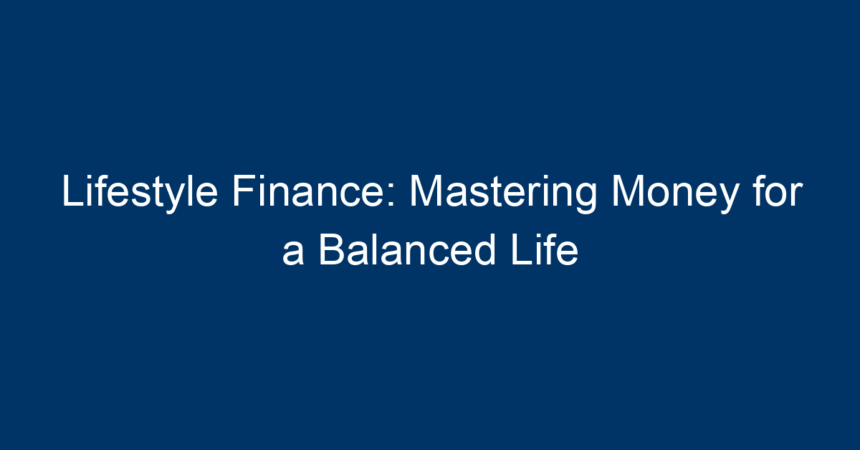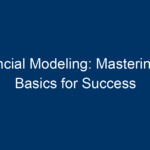In a world driven by consumerism and financial pressure, the concept of lifestyle finance is emerging as an essential approach to achieving not just wealth, but also a fulfilling life. Lifestyle finance focuses on managing money in a way that aligns with your personal values, goals, and well-being. This comprehensive guide will delve into the nuances of lifestyle finance, exploring how you can achieve financial literacy, security, and happiness simultaneously.
Understanding Lifestyle Finance
What is Lifestyle Finance?
Lifestyle finance is about more than merely accumulating wealth; it’s an approach that emphasizes how money impacts your overall lifestyle. It involves creating a financial plan that considers your personal aspirations, values, and life goals. This strategy empowers individuals to lead balanced lives where happiness and financial security coexist.
The Importance of Financial Literacy
Financial literacy is the cornerstone of lifestyle finance. Understanding the basic principles of budgeting, saving, investing, and managing debt is vital for anyone wishing to take control of their finances. A well-informed individual can make choices that support their lifestyle rather than dictate it, leading to long-term satisfaction and stability.
Key Components of Lifestyle Finance
1. Budgeting for Your Lifestyle
Creating a budget is the first step in mastering your finances. A lifestyle-centric budget focuses on aligning your spending with your personal values. Rather than simply tracking expenses, think about where your money goes in relation to your life goals.
Tips for Effective Budgeting:
- Identify Your Priorities: Determine what matters most to you. Whether it’s travel, education, or quality time with family, make sure these priorities reflect in your budget.
- Utilize Budgeting Tools: Modern apps like Mint or YNAB can help you maintain your budget effectively.
- Review and Adjust: Revisit your budget regularly to see if it aligns with your changing priorities and financial situation.
2. Saving for Experiences
Many believe that saving is only about building a financial buffer or retirement fund. However, lifestyle finance stresses the importance of allocating funds for experiences that enrich your life.
How to Save for Experiences:
- Establish an Experience Fund: Set aside a specific percentage of your income to enjoy adventures and activities that resonate with who you are.
- Seek Affordable Alternatives: Participate in community events, explore local attractions, or engage in hobbies that can satisfy your desire for experiences without breaking the bank.
3. Smart Investing
Investing is a critical element in lifestyle finance. However, it should not just be about stocks and bonds; it’s about choosing investments that fit your lifestyle goals.
Strategies for Lifestyle-Centric Investing:
- Align Investments with Values: Consider socially responsible investing or funds that align with causes you care about.
- Diversify for Stability: A diversified portfolio can provide stability and peace of mind, ensuring your investments support your lifestyle even during market fluctuations.
4. Managing Debt
Debt can be a significant barrier to achieving a balanced life. Understanding how to manage and eliminate debt is crucial in lifestyle finance.
Debt Management Strategies:
- Consolidate and Prioritize: Look into consolidating high-interest debts and focus on quick wins by paying off smaller debts first.
- Set Limits: Always ensure that your debt repayments do not encroach on your ability to enjoy life. Setting a reasonable cap on debt allows for freedom to spend on experiences and savings.
5. Creating Multiple Income Streams
In the pursuit of a balanced life, relying solely on a single income can be risky. Exploring multiple income streams can alleviate financial stress and provide a cushion for your lifestyle goals.
Ideas for Additional Income:
- Freelancing or Consulting: Use your skills to earn extra income on the side.
- Passive Income Streams: Consider real estate investments or generating income from online content, which can offer financial freedom.
The Intersection of Lifestyle and Financial Goals
Aligning Financial Goals with Personal Values
Personal values are at the heart of lifestyle finance. Your financial goals should reflect what you truly care about. Instead of chasing vague milestones, identify and articulate specific goals that resonate with your lifestyle.
Example Financial Goals:
- Retirement Planning: Rather than just saving for retirement, visualize what kind of lifestyle you want during retirement and align your savings plan with that purpose.
- Education Savings: If education is important to your family, create a dedicated savings plan for it.
The Role of Mindset in Lifestyle Finance
Cultivating a Positive Financial Mindset
Achieving a balanced life through lifestyle finance starts with your mindset. A positive relationship with money will empower you to make choices that lead to fulfillment and abundance.
How to Shift Your Mindset:
- Practice Gratitude: Regularly acknowledging the positives in your financial life can lead to better financial decisions.
- Educate Yourself: The more you know about finance, the more confident you become in managing your money.
Overcoming Financial Anxiety
Financial stress is a significant barrier to a balanced life. Developing coping strategies can help you manage this anxiety.
Strategies for Managing Financial Stress:
- Regular Check-Ins: Routinely inspect your financial standing and adjust your budget as necessary.
- Seek Professional Help: Working with a financial advisor can provide perspective and guidance.
Conclusion: Actionable Insights for Mastering Lifestyle Finance
Mastering lifestyle finance takes commitment, but the rewards are well worth the effort. To summarize:
- Create a Lifestyle-Centric Budget: Align your budget with your personal values and priorities.
- Save for Experiences: Focus on enriching your life by setting aside funds for meaningful experiences.
- Invest Wisely: Choose investments that resonate with your lifestyle and values.
- Manage and Eliminate Debt: Prioritize debt repayments to regain financial freedom.
- Explore Multiple Income Streams: Diversify your income to provide stability.
By incorporating these principles into your financial journey, you can pave the way for a balanced life enriched by both financial security and personal fulfillment. Start today—embrace lifestyle finance and transform your relationship with money into one that works for you, not against you.




